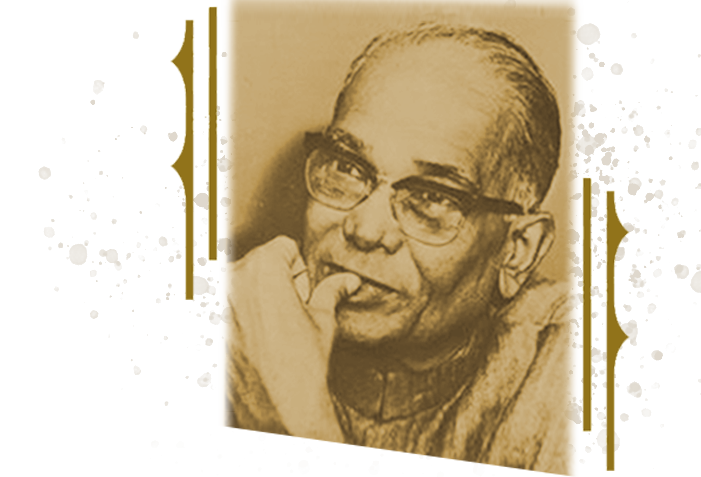1902 - 1922 EARLY YEARS
Jayprakash Narayan was born on 11th October 1902 in Sitabdiara village on the border of Bihar and UP. Neither the house nor the village remains where it was due to shifting rivers. Father, Harsu Dayal, was a revenue official and a sympathiser of modest congress demands. Due to frequent transfers the family travelled a lot and was well read. Mother was an orthodox religious house wife. Older brother and a sister died at an early age of Cholera. He had two more sisters, one older and one just younger - Chandrakala and Chandravati and a brother Rajeshwar - eight years younger to JP. The family could be termed as middle class with few comforts. As a young child he was studious and somewhat withdrawn. Innocent to the point of being simpleton he was nick named "Baul". He was very sensitive to suffering. This trait remained with him till end.
He took admission in the Patna College School at the age of 11-12. JP was in early teens when he was first introduced to a youthful revolutionary of Bengal. Though impressed by the ideals, he did not allow it to affect the studies. He was an outstanding student. While he was fascinated by English, he did not forsake Hindi. He even wrote an essay "The state of Hindi in Bihar" that won the prize. In school, he boycotted the classes because they were held on the day of Raksha Bandhan, for which he was punished with five cane strokes.
His English and Mathematics teachers left a profound impression and awakened JP's interest in the subject. English was taught by a Muslim teacher, who encouraged JP to read English literature and poetry. Through him he also got the glimpse of the rich Urdu culture that had survived the Mughal court.
Through his brother in law, Braj Bihari Sahai, who was also his legal guardian at the time, he was introduced to the well known barrister and congressman of the time Rajendra Prasad (future president of India). And it was at Rajendra Prasad's house that JP was introduced to Brajkishore Prasad, an outstanding barrister in his own right. JP was then a budding young man of 18 years. Dr. Rajendra Prasad and Babu Brajkishore Prasad, both had thriving law practice but both had a social bending of mind. Soon after starting his historical Champaran experiment Mahatma Gandhi caught these two legal lumenaries as his sheet anchors. Brajkishore Babu was so impressed by young JP that he promptly arranged a match with his younger daughter Prabhavati. His elder daughter was married to Mritunjaya Prasad, son of Rajendra Prasad. Prabhavati was only 14 at her marriage. As per custom she continued to stay with her parents after marriage.
JP passed is matriculation in first division and also won the scholarship of Rs 15 a month. Following the 13th April 1919 Jalianwala Baugh massacre Gandhiji launched his first country wide movement of non-cooperation. That is when JP first saw Gandhiji at a public meeting. Though exciting, these events initially did not disturb his studies. But that wave was not an ordinary one ! It engulfed many. Heated political discussions convulsed the students.
One day, just before his I. Sc. exams, there was a public meeting addressed by Maulana Abul Kalam Azad and Jawaharlal Nehru. That day Maulana Azad was at his eloquent best and that decided for JP and many of his friends the mental dilema of to quit or not to quit their colleges. There were many who argued that until Mahatma Gandhi established suitable colleges and schools, how could he call for a boycott ? Maulana Azad argued that it was as foolish as saying that a man must continue having poison till someone made nectar available to him ! That was the last straw in a camels back ! Almost all the leading students of Patna College resolved to quit the study. Those were the days of revolution !
JP took to weaving khadi and learnt to spin on the Charakha. On persuasion from family he passed with distinction from the Bihar Vidyapeeth, established by Gandhiji, to create an alternative for the students leaving colleges. But for further studies there was no alternative.
After the first flush of the movement, his father and brother-in-law, convinced him to go abroad for higher studies. Going to Britain did not make sense, especially after boycotting the colleges in India. Finances were another hurdle. Finally, the search narrowed down to America as many of the Indians had worked their way through college. The successful American war of independence was another attraction for the young JP.
In 1922, JP embarked on the journey to San Francisco in United States via Kobe in Japan.


